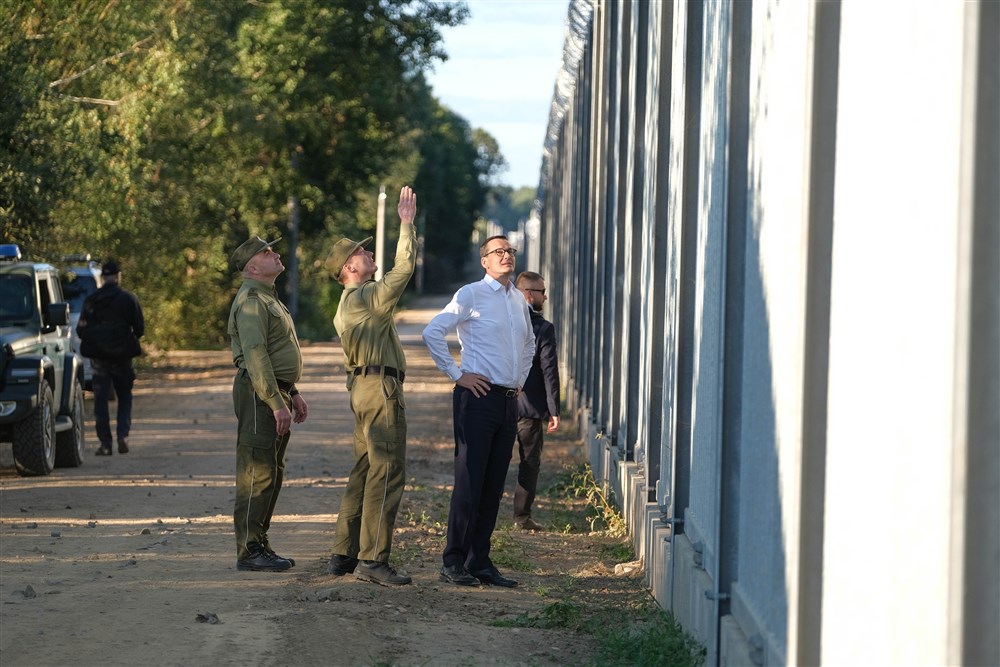In 2017 the British think-tank Chatham House conducted a poll in ten European nations, asking whether “All further migration from mainly Muslim countries should be stopped”.
Before we turn to the results, please keep in mind that Chatham House is a mainstream, well-recognized, quintessentially establishment institution – not some crazed Right-wing outlet. It just happened that in this case they asked the question no one else dared to.
The overall response by the polled Europeans was abundantly clear. 55 per cent agreed with the statement, 25 per cent neither agreed nor disagreed, and only 20 per cent rejected the idea to put a halt to migration from majority Muslim countries. A Pew poll a few years later showed similar results, with a median of 51 per cent rejecting the idea of more immigration into Europe.
All of these results, however, conceal an important fact: Migration takes place in Europe all the time, and most people do not oppose the idea of freedom of movement within the European Union.
In Austria, for example, the largest group of foreign nationals come from Germany – and there is no widespread movement demanding the closure of the German-Austrian border. The reason for this is that the Austrian public would not consider a German moving from Stuttgart to Salzburg a “migrant” in the way the term is currently used in the political discourse.
Similarly, even the supposedly notoriously xenophobic Poles had no problem throwing their borders wide open for Ukrainian refugees and providing humanitarian assistance on a massive scale.
In the imagination of the European public the term “migrant” has become explicitly linked to the thought of immigration from countries with distinctly non-European cultures, which is one reason why especially Eastern Europeans steadfastly refuse to participate in any of the migration schemes coming routinely from the European Commission these days.
Contrary to their post-national and post-modern Western neighbours, the countries that once belonged to the Soviet sphere of influence are jealously guarding their national and cultural identity.
For Western elites this is just some reactionary nationalism of yesteryear, but maybe those Easterners are on to something. A few days ago massive pro-Palestinian and in many cases pro-Hamas protests erupted in major Western European cities, but were conspicuously absent in the East.
The European Union likes to claim that the horrors of the Holocaust were a founding event in its history, yet we have to ask: If you are a Jew, do you feel safe in Brussels, Berlin, London, or Paris? Or might it be that the only places where being openly Jewish in Europe are getting fewer and fewer. It is only the supposed “racist” places like Poland, Hungary, and a few others where wearing a kippah is not seen as an invitation to public abuse.
But of course, it might start with the Jews, but it never stops there: A few days ago two Swedish tourists were shot by a rejected asylum seeker from Tunisia in an Islamism-inspired terrorist attack in Belgium. The event was reminiscent of the attack on a German Christmas market in 2016 that killed 12 people when another Tunisian asylum seeker drove a truck into a crowd of people visiting the market. On Saturday, a schoolteacher was stabbed by another Islamist in France, forcing President Macron to mobilize thousands of troops due to increased security concerns.
More and more people are starting to wonder who is allowed into Europe, and whether there is any attempt at truly vetting these migrants. Both attackers were known to the Belgian and German authorities, yet once someone arrives in Europe they never leave again. This is why the new “migration pact” and its idea of quotas for how many migrants a country has to take in, is increasingly viewed as a Trojan horse to implement failed Western migration policies in the East.
At the time of writing, it remains uncertain how events in the Middle East will continue to unfold, but across the Mediterranean a very clear picture is emerging.
The European Commission’s idea of a migration pact that is often indistinguishable from an open border policy will be ending. It is not fully visible yet, but the last few days have shifted the moral high ground in the migration debate.
There is no way for Germany, Belgium, Sweden or France to continue their claim that they have a better immigration policy than, for example, Poland or Hungary.
They have not said it yet, but Warsaw and Budapest will point out what has become obvious: Nobody takes you seriously if you constantly talk about the last Holocaust, when you simultaneously open your borders to those who are willing to commit the next one.






Europe’s capital needs media to challenge the status quo: That’s why Brussels Signal is launching